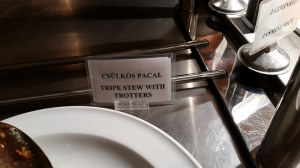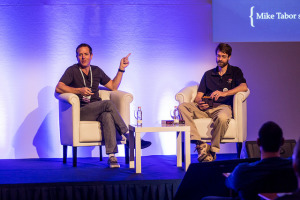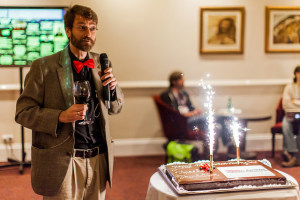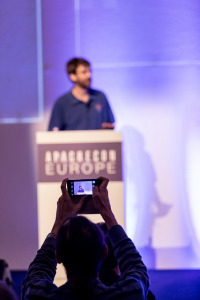Originally posted on opensource.com.
OpenStack is on a six-month release cycle, with each release given a code name starting with consecutive letters of the alphabet. On October 16th, OpenStack Juno will be released, with several new projects, and lots of new features.
Here’s a few of the things you can expect in the next release of
OpenStack. This isn’t intended to be comprehensive – just a taste of
some of the things that are coming.
Nova
As the core of OpenStack, Nova needs to be solid. But this doesn’t mean that it’s slow to change, with some significant changes coming in Juno.
* NFV
NFV – Network Function Virtualization – is a big deal lately, and you
can look to see lots of people working on it, as well as vendors talking about it.
* Live Upgrades
First introduced in Icehouse, live upgrades were still a little rocky.
You’ll see big improvements in this area in Juno.
* More
See more of what’s coming in Juno in Russell Bryant’s blog post at
http://blog.russellbryant.net/2014/07/07/juno-preview-for-openstack-compute-nova/
Ceilometer
Ceilometer is the metering/measurement component of OpenStack.
* Speed
Over the last few cycles, the Ceilometer team have identified some
poorly-designed parts of the project, and have taken a lot of time this cycle to pay down the technical debt to regain some of the performance lost to those decisions. So you can look for Ceilometer to be much more efficient, and faster, in Juno.
* Community reboot
The project management is moving from a top-down decision making process to a collaborative community decision making process, so that everyone has a voice in how decisions are being made.
Additionally, some controls are being put in place regarding the code freeze at the end of the cycle, so that people aren’t trying to rush new functionality in at the last minute, resulting in testing gaps.
* QA
Speaking of testing, there’s also an effort to ensure more Tempest and Grenade test coverage in Juno, which should ensure better code
reliability.
* More
See more of what’s coming in Juno in this interview with Eoghan Glynn of the Ceilometer community:
http://community.redhat.com/blog/2014/07/upstream-podcast-episode-10-rich-bowen-with-eoghan-glynn-on-openstack-juno/
Heat
Heat is the orchestration component of OpenStack, which can be used to set up and tear down infrastructure automatically in response to environmental events, or scripted.
* Rollback
In the past, if a Heat deploy failed, you just moved on, and maybe went back and cleaned up by hand. In Juno, it will be easier to roll back a failed deployment, and be sure that all of the various pieces have been cleaned up.
* Create resources without being admin
In Icehouse and earlier, certain types of resources could only be
created as admin. In Juno, creating users will still require that you be
admin, but you can then delegate privileges to that user so that they
can create resources without having to be admin.
* More
Read more about what’s coming in Juno for Heat at
http://www.zerobanana.com/archive/2014/07/10#heat-juno-update
Glance
Glance is “a service where users can upload and discover data assets
that are meant to be used with other services, like images for Nova
and templates for Heat.” This is a new mission statement in Juno, and some of the changes that are coming are:
* Artifacts
The scope is expanding in Juno to be more than just an image registry, to being a generic catalog of various data assets. This will allow for greater flexibility in how it can be used.
* More
Read more about what’s coming in Juno for Glance at
http://blog.flaper87.com/post/juno-preview-glance-marconi/
Marconi
Marconi (Now renamed to Zaqar) is OpenStack’s messaging and queuing system, and so is very important to all of the other components.
* Redis
In Juno, Zaqar will add a storage driver to support redis, and
support for storage engines is in the works. It will be possible to create and tag clusters of storage and then use them based on their capabilities.
* Queues migration
The Zaqar team will be adding support for queues migration between pools of the same type. Read more at
https://blueprints.launchpad.net/marconi/+spec/queue-migration
* More
Flavio’s article at
http://blog.flaper87.com/post/juno-preview-glance-marconi/ also covers Zaqar, as well as Glance.
Keystone
Keystone is the identity management piece of OpenStack, and has some big improvements coming in Juno.
* LDAP integration
Using Keystone against a database is ok, in that it does password
authentication. But what you really want is to integrate it with your
existing user authentication infrastructure. This often means LDAP. In Juno, you can configure Keystone to use multiple identity backends, and integration with LDAP will be much easier.
* Other security projects
The same community that works on Keystone is also very interested in other security related projects in the OpenStack ecosystem. Look for projects Barbican and Kite to be more active in the coming months.
* More
Nathan Kinder’s article at
http://redhatstackblog.redhat.com/2014/08/05/juno-updates-security/ covers more of what’s coming in Juno. See also this blog post: https://blog-nkinder.rhcloud.com/?p=130 for clarification of some of these goals.
TripleO
TripleO is a project about installing, upgrading, and operating
OpenStack clouds in an automated fashion. This is a big area of interest in Juno – making OpenStack easier to deploy and manage.
* High Availability
A big push in Juno is deploying HA clouds with TripleO. This will be the default behavior, which has the added benefit of getting everyone testing HA deployments, even on “clusters” as small as 1 node.
* Heat templates
TripleO uses Heat as part of the automation of deployment. So in Juno a lot of work has gone into the Heat templates that are used.
* More
Read more about what’s coming in Juno for TripleO in James Slagle’s blog post at http://blog-slagle.rhcloud.com/?p=235
Horizon
Horizon is the web admin interface for OpenStack. While many people will interact with OpenStack via the command line and APIs, the web interface is still the face of OpenStack for many OpenStack operators.
* Sahara (Hadoop)
Sahara is a new project that makes it easier to deploy Apache Hadoop or Apache Spark on OpenStack. This project has graduated, and so it’s now integrated into the dashboard, so you can deploy Hadoop clusters with a few mouse clicks.
* JavaScript unbundling
As good Open Source citizens, Horizon has moved to unbundling the
Javascript libraries that were previously copied into the Horizon source tree. This not only makes it easier to manage upgrades, but also complies with no-bundling requirements in certain Linux distros like
* More
See more about what the Horizon team is doing for Juno in Matthias
Runge’s blog post at http://www.matthias-runge.de/2014/09/08/horizon-juno-cycle-features/
See also
This is just a sampling of what’s coming in Juno. As well as reading all
of the excellent articles at https://openstack.redhat.com/Juno_previews
see also the YouTube playlist of PTL (Project Technical Lead) webinars.
And come to the OpenStack Summit in Paris to see what we’ll do for an encore in Kilo.







